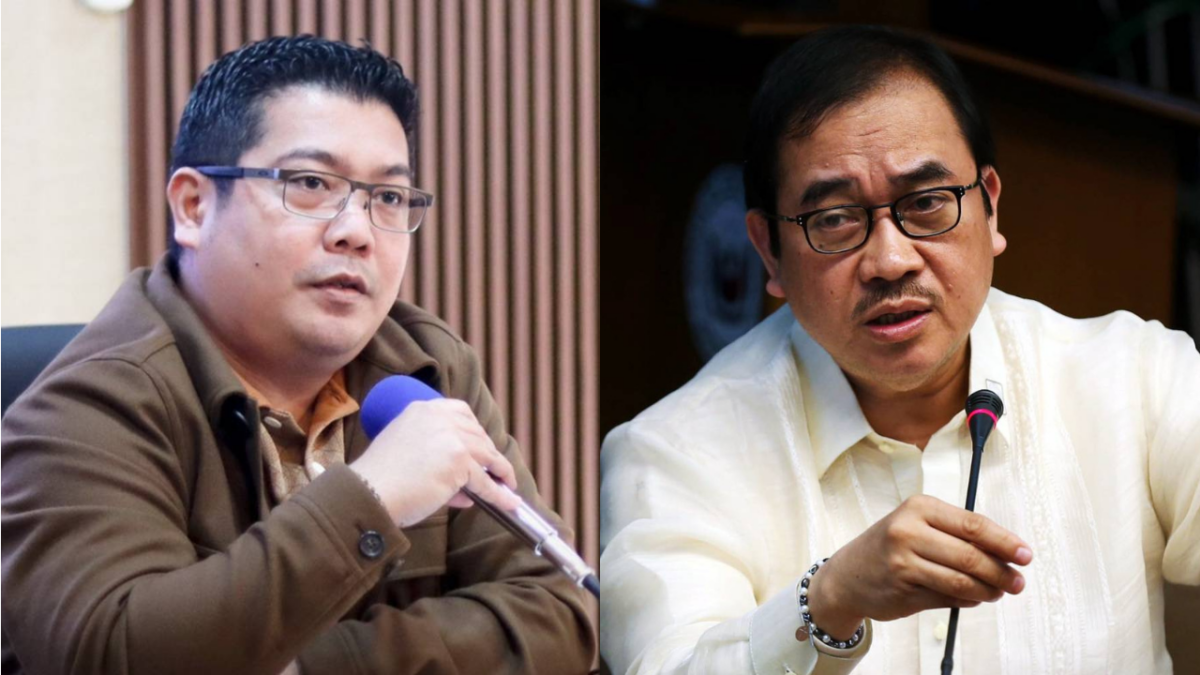
FDA director general Dr. Samuel Zacate (left) and Dr. Anthony Leachon —photo from Facebook of FDA/Inquirer files
MANILA, Philippines — The Food and Drug Administration (FDA) has warned physicians who dispense medicine to their patients that they may face sanctions, stressing that it is a job solely done by pharmacists.
In an announcement dated May 16 but publicized by the Department of Health (DOH) on Sunday, the FDA said it received reports that “several doctors procure, store, sell and offer for sale drug products to their patients” without the proper authorization.
Under Republic Act No. 10918, or the Philippine Pharmacy Act, dispensing is defined as “the sum of processes performed by a pharmacist from reading, validating and interpreting prescriptions: preparing; packaging; labeling; record keeping; dose calculations; and counseling or giving information, in relation to the sale or transfer of pharmaceutical products with or without a prescription or medication order.”
READ: FDA sheds light on some issues about prescription
“Dispensing is an exclusive activity of a pharmacist, to be conducted only within a licensed establishment,” FDA director general Dr. Samuel Zacate said in the announcement.
Under RA 2382, or the Philippine Medical Act, physicians are the only ones authorized to prescribe medicine, while only licensed pharmacists can dispense and sell medicine under RA 10918.
Doctors will also write prescriptions for their patients using the generic names of the medicines. The brand name of the prescribed drug is only optional.
Samples should be free
Physicians’ samples or medicines intended for promotion will be given away for free and not be sold to any pharmaceutical outlet or the consuming public. The statement “sample, not for sale,” or its equivalent, should be in its packaging.
Doctors who sell drugs without proper authorization issued by the FDA is a case of violation of RA 3720, which was amended by RA 9711, or the FDA Act of 2009.
They are also not allowed to sell drugs without the supervision of a licensed pharmacist, which is a violation of RA 10918.
Physicians also cannot sell medicine to patients without issuing receipts, and without observing good distribution and storage practices.
“All concerned are requested to immediately cease from conducting such activities until proper authorization has been secured. Regulatory actions and sanctions shall be strictly implemented in case of noncompliance,” the FDA said.
The regulator also warned all licensed drug manufacturers and distributors that they are not authorized to sell to unlicensed retail outlets, “including clinics of medical doctors.”
Report to FDA
The FDA advised the public not to avail of medicine from the clinics of doctors unless these were FDA-registered and sold with the supervision of a licensed pharmacist.
The public may report to the FDA the illegal activities of doctors who continue to dispense drugs through ereport@fda.gov.ph.
It was the third time this year that ethical issues were raised about medical and health professionals.
Last month, the DOH ordered an investigation of claims made at a Senate hearing that a local pharmaceutical distributor co-opted physicians in a multilevel marketing scheme that included hefty financial rewards as incentives.
This was followed by revelations by renowned cardiologist Anthony Leachon that big pharmaceutical companies have co-opted some physicians to prescribe their products in exchange for cars, sponsorships at local and foreign scientific meetings and other expensive perks.
Leachon has also sued a number of companies that use his image to promote their unregistered health products online.